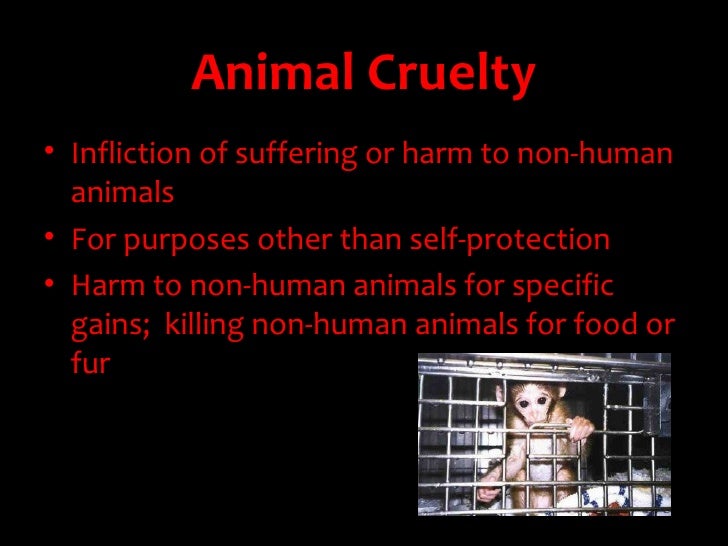When pondering the intricacies of animal cruelty, one might ask: is this phenomenon solely an ethical concern, or does it transcend mere morality to encompass a far broader spectrum of cultural implications? This question invites us to explore not only the ethical facets of animal welfare but also the diverse cultural contexts within which these issues arise. The interplay between morality and cultural norms often shapes societal attitudes toward animals, revealing deep-seated beliefs that vary dramatically from one civilization to another.
At its core, animal cruelty can be defined as the infliction of unnecessary suffering or harm upon non-human creatures. This includes a wide array of actions, from neglect and abandonment to deliberate physical abuse. The moral implications of such actions are evident; however, how cultures interpret and react to animal cruelty is a fascinating study in ethical relativism. In some cultures, certain practices that may be deemed cruel elsewhere are considered normal or even beneficial. For example, in some regions, animals are used for labor or food in ways that might shock those from societies with different ethical standards.
To dissect this moral conundrum further, we must first acknowledge that ethical principles are often products of sociocultural evolution. Many societies have developed a set of norms that emphasize compassion and empathy towards animals, advocating for welfare and rights. These principles align closely with philosophical doctrines such as utilitarianism, which posits that actions can be deemed right or wrong based on their outcomes in terms of suffering and happiness. In this context, animal cruelty becomes an ethical transgression as it unequivocally leads to suffering, calling into question the moral standing of those who perpetuate such actions.
Conversely, some cultures maintain a utilitarian viewpoint regarding animals, perceiving them primarily as resources for human benefit. This belief can manifest in practices such as factory farming, where animals are reared in conditions that prioritize efficiency and profit over well-being. Here, the moral argument against animal cruelty faces formidable resistance. It challenges the very foundation of cultural tradition and economic necessity that many adherents feel is central to their way of life. The ethical dilemma becomes a tug-of-war between animal rights advocates and those advocating for human economic and social needs.
Yet, as globalization occurs and cultures intermingle, the discourse surrounding animal ethics is evolving. There is a growing recognition of universal values surrounding compassion and respect for all sentient beings. The advent of social media and widespread information dissemination has amplified the voices of animal rights activists, leading to a questioning of normative practices. Documentaries, books, and online campaigns have galvanized efforts to alter perceptions of animal cruelty and advocate for change. The rhetorical question arises: is it possible for universal ethical standards regarding animal welfare to emerge amid such diverse cultural landscapes?
Examining ethical frameworks across various cultures reveals substantial divergences and occasional alignments. For instance, many Eastern philosophies, including Buddhism and Jainism, espouse a profound reverence for life, advocating non-violence and interconnectedness. These traditions often oppose animal cruelty vehemently, promoting vegetarianism and compassion towards all living beings. However, when placed under the scrutiny of Western ethical theories, conflicts can arise, particularly when economic and philosophical paradigms clash. Critically, we are confronted with the challenge of reconciling these divergent views while fostering dialogue on shared values.
Moreover, the influence of religious doctrines on perceptions of animal welfare cannot be overlooked. In Abrahamic faiths, varying beliefs about dominion over animals can complicate the moral judgment associated with animal cruelty. Where some interpret these texts as licenses for exploitation, others advocate for stewardship, positioning respect for animals as a divine duty. The resulting contention complicates the ethical landscape further, raising crucial questions: does one adhere strictly to textual interpretations, or should broader ethical principles prevail?
Thus, as discussions around animal cruelty unfold, the interesting possibility of cultural convergence emerges. Could the interplay of moral philosophy and cultural customs yield a synthesis that promotes a more humane treatment of animals across the globe? The challenge remains to foster environments where ethical reflections on animal welfare take precedence over tradition and convenience. Each cultural negotiation could serve as a platform for pioneering new ethical standards that resonate universally, promoting empathy and ethical care for all sentient beings.
In conclusion, the inquiry into whether animal cruelty constitutes a moral issue inevitably uncovers a labyrinth of ethical considerations entwined with cultural identity. The moral landscape is littered with contradictions, culturally specific practices, and evolving sentiments. As we engage in this discourse, recognizing the common threads of empathy, reverence for life, and the pursuit of justice becomes paramount. The conversation around animal rights is not merely about opposing cruelty—it’s about encouraging a collective awakening to the responsibilities we hold towards the creatures we share our planet with. As we broaden our ethical horizons, the hope is for a world where the question of animal cruelty shifts from a moral challenge to a moral imperative, compelling us to act towards safeguarding the voiceless.








